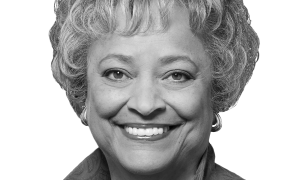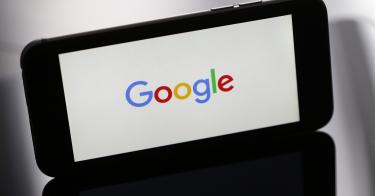Google decided this year to create an advisory council that would help guide the company in the responsible development of artificial intelligence. When the company asked me to join, I agreed, welcoming the opportunity to contribute my perspective as a conservative leader — and to test my thinking with council members who might not necessarily agree with me. Together, I thought, we might be able to make valuable contributions as Google explores an important new frontier of technology.
Like many businesses and nonprofits, my organization, the Heritage Foundation, relies on Google search, YouTube and other Google products to promote our work, to reach audiences and to advance our mission. We’re also concerned about reports alleging that Google suppresses conservative voices and politically skews its search-engine results. It was reassuring to be invited to participate in the AI advisory council — a sign that Google wanted to treat a wide range of viewpoints fairly as it develops new technology. Given the massive control exerted by social media and Internet companies over the information Americans use every day, such broadmindedness is essential.
Unfortunately, some individuals inside and outside the company didn’t share this appreciation for a diversity of viewpoints. That became clear last month after the members of the advisory council were announced. Some Google employees were so alarmed by the prospect of a conservative invading their playground that they started a petition to have me removed from the panel. It gained more than 2,500 signatures.
But the Google employees didn’t just attempt to remove me; they greeted the news of my appointment to the council with name-calling and character assassination. They called me anti-immigrant and anti-LGBTQ and a bigot. That was an odd one, because I’m a 69-year-old black woman who grew up fighting segregation.
Last week, less than two weeks after the AI advisory council was announced, Google disbanded it. The company has given in to the mentality of a rage mob. How can Google now expect conservatives to defend it against anti-business policies from the left that might threaten its very existence?
I was deeply disappointed to see such a promising idea abandoned, but the episode was about much more than just one company’s response to intolerance from the self-appointed guardians of tolerance.
It was symptomatic of where America is heading. Whether in the streets or online, angry mobs that heckle and threaten are not trying to change hearts and win minds. They’re trying to impose their will through intimidation. In too many corners of American life, there is no longer room for disagreement and civil discourse. Instead, it’s agree or be destroyed.
My fellow advisory-council members have now been deprived of the opportunity to question me about what they might see as the contradiction of my policy views and my absolute unconditional acceptance of every member of the human family. They may not have agreed with me, but they would have understood me better — and I, them. With that, we would have had the opportunity to work together to make better public policy on an exceedingly critical issue.
I believe there are many opportunities for a civil discussion of religious values and how they conflict with other values. Some on the left are willing to engage in such an open-minded debate. But too often those on the left are turning into the very thing they say they despise, using hate and stereotyping to try to silence anyone they regard as an enemy. The public square is becoming so poisonous that good liberals and good conservatives must be wary of coming together to discuss ideas and seek solutions.
Being attacked is not new for me. As a black, conservative, pro-life, evangelical woman, I have spent most of my life being called names and being denounced for my beliefs.
In 1961, at age 12, I was one of two-dozen black children who integrated an all-white junior high school in Richmond. White parents jeered me outside the school, and inside, their kids stuck me with pins, shoved me in the halls and pushed me down the stairs. So when the group of Google employees resorted to calling names and making false accusations because they didn’t want a conservative voice advising the company, the hostility was reminiscent of what I felt back then — that same intolerance for someone who was different from them.
Uncivil discourse is an illness in America. We can do better — we must strive to show the world what a pluralistic society should be, a place where people of different faiths and viewpoints are willing to engage and willing to listen to others, especially when they bring different ideas to the table. From those conversations come a deeper understanding and better policies — and ultimately a better, more civil society for all.
This piece originally appeared in Washington Post




